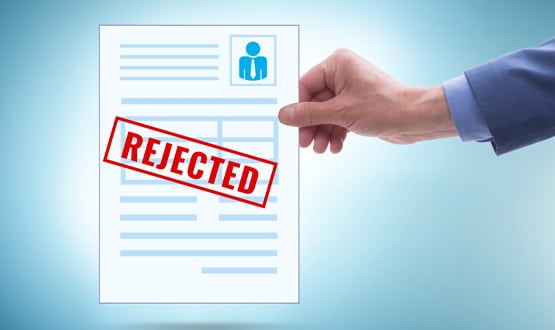Another view
- 25 February 2013

My fellow eHealth Insider columnist, Joe McDonald, wrote an interesting piece on applying ‘easyThinking’ to the NHS recently.
He had been on an easyJet flight, and thought that the NHS could usefully consider applying some of the company’s thinking to its processes. Could there be an easyMood website to take on some of the burden of identifying and treating low-level depression, for example?
I read his piece with interest, and found myself agreeing entirely with the statement that: “We will need to free up clinical staff to spend more time ‘in the air’ and less on the ground.”
I also liked the phrase: “We need to be using systems in the way easyJet uses systems; with the customer taking responsibility for doing as much of the work as possible; and not just checking in, if we are to save £20 billion.”
A form exists; let the patient have it
But where could we apply such methodology? Looking at things that our receptionists do, I think it is time consuming things that need handing over, such as taking and passing on messages to a doctor and dealing with forms.
For example, we recently had a superb system introduced for recording and printing ‘fit notes’. However, issuing duplicates is a pain.
Someone comes in and asks for a duplicate, the receptionist messages me, I go into their record, find the fit note they want, print it off and carry it to reception, which then contacts the patient.
Why can’t people just order a duplicate off Emis Access? If they could, they would never even need to trouble us. But has this been thought of? And if not, how do we get it thought about now?
Passing on the right work
Joe’s ideas about easyMood made me laugh. In his column, he claimed that GPs – who are, apparently, going to be “in control” of the NHS once the government’s latest reforms kick in – would be unlikely to embrace something like it because it might replace them.
This couldn’t be more wrong. For years, we have been trying to find ways of doing at least some of our jobs with “cheaper” resources.
We have passed some chronic disease management to nurses, passed acute illness to nurse practitioners, and employed salaried doctors at cheaper rates.
The basically fixed income that a GP practice receives is based on its capitation, which means reducing that reducing the payroll is attractive.
The trick is not persuading GPs to embrace technology – we pioneered IT in medicine remember – it’s finding something that will do as good a job as we can do.
This next bit might be controversial, but in my experience chronic disease management nurses tend to over-specialise in one disease, and don’t treat the patient holistically. As a result, there is a big move back to multi disease clinics; but finding suitably trained nurses is difficult.
Also, in our experience nurse practitioners seem to generate work (not on purpose but because they get a lot of “I wouldn’t have troubled the doctor with this…” kind of problems) and have higher-bring back rates (as do junior doctors).
So few systems will do as good a job as a GP, largely because of the variety of what we see.
Tongue in cheek, I might say that Joe might spend an entire clinic seeing patients with one problem – depression (if they turn up which, if I remember from my medical student days, they often don’t) but I will see 20 patients with massively diverse problems.
My surgery this morning covered cardiovascular medicine, rheumatology, musculoskeletal problems, chronic pain, low mood with relationship problems and possible abuse, drug and alcohol abuse, gynaecology, paediatrics and terminal care.
I can’t see a computer easily triaging that lot without a massive expert system that will take millions to deliver.
Look it up – and don’t come in
Despite this, I’m still keen on the idea of automating as much as possible. I’d start with the culture of looking stuff up.
A friend’s son recently developed alopecia areata. He had already Googled it and was more up to date than I was – yet his parents wanted to check with me.
Given that we already have NHS Choices and patient.co.uk, how do we get people to use them and believe them instead of coming in to see us?
After all, if I want to find out something about my phone bill, I look on the website of the phone company before I even think about making an appointment to discuss it.
Our physios have started putting self-help videos on our practice website. Perhaps the local touch will work better than the national brands?
EasyHighbloodpressure
Second, we do need some new services that make my life easier and my patients better. Right back in the easyMood space, I’m meant to be able to refer for computerised CBT.
At least, I’m fairly certain that my PCT commissioned some. But even though I’ve asked, I don’t know how to access it.
What I need is a simple link on my desktop or in a program that lets me find a computerised service and print off instructions telling the patient how to access it.
I don’t need a massively complex map of medicine-type system that tries to do my job for me – I just need an up to date directory of local and national services that are easily sortable and searchable.
Hypertension springs to mind as another area in which we could use some easyThinking. It’s a huge volume of work, protocol driven, with lots of routine checks for which coming into the surgery to see a health care assistant must be a pain.
Go online, do some home readings on a validated machine, send in a urine sample for dipping or dip your own at home, put all the results on a computer.
If your results are ‘normal’ – great. The system should congratulate you and offer you advice on other things.
If they are ‘abnormal’ – not so great. The system should push compliance, diet and lifestyle advice and put up the medication.
I’ve mentioned this idea to some local clinicians, and they go on about patients lying and under reporting their weight and blood pressure and so forth.
My answer to this is that we should clearly explain to people that telling the truth gets them the best, evidence-based medicine. Lying and, in particular, under representing their readings puts them at risk. However, it’s up to them.
Actually, I think that the patients who might lie won’t engage in the first place. If we had a good system in place, we’d have more time to do something that might have real impact, like chase up the apathetic disinterested.
Then there’s the phone…
To look into this further, as part of my clinical commissioning group role I’ve been working with health2works and some students at the University of Liverpool physics department.
We’ve been scoping a project to see whether a website could do most of a hypertension health check and collect other interesting / useful information along the way.
We are only part way into the project, so it’s too early to report. But targeting little niches like this looks doable. The key has to be making it easy to use so support, so automating it doesn’t in practice take as long as just doing it.
We are obviously onto something, as I attended a Florence event at the Britannia stadium the other day.
Florence is a telehealth provider with an automated telephone system that contacts patients, so while it isn’t website-based it works along the same lines.
At the moment, there are ten pathways in which they think the phone has a role; things like hypertension, reminding people to take medication, and advice on inhaler technique.
The system looks very good. I’m not convinced it will replace GPs, but it and systems like it should help us to be more productive.
Finding a way to demand change
My worry is that our relationship with IT suppliers is wrong. Perhaps this is the problem with being a small practice and not a massive corporation. If easyJet wants to change the way it does things, it can instruct its suppliers to change their software and pilot the impact on its workflow.
We have very little control over the roadmap of our software suppliers, and getting pilots up and running is a column in itself. Unfortunately, I doubt CCGs will be big enough to be in control.
About the author: Dr Neil Paul is a full time partner at Sandbach GPs, a large (21,000 patient) practice in a semi rural Cheshire. He is one of five executive GPs for NHS South Cheshire CCG and has a mixed portfolio that includes IT.
He was previously on the PEC of NHS Central and East Cheshire. He also writes iPhone software, runs a primary care clinical trials unit and is involved in several exciting IT projects.




